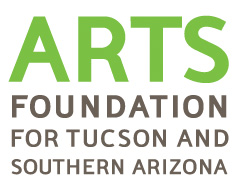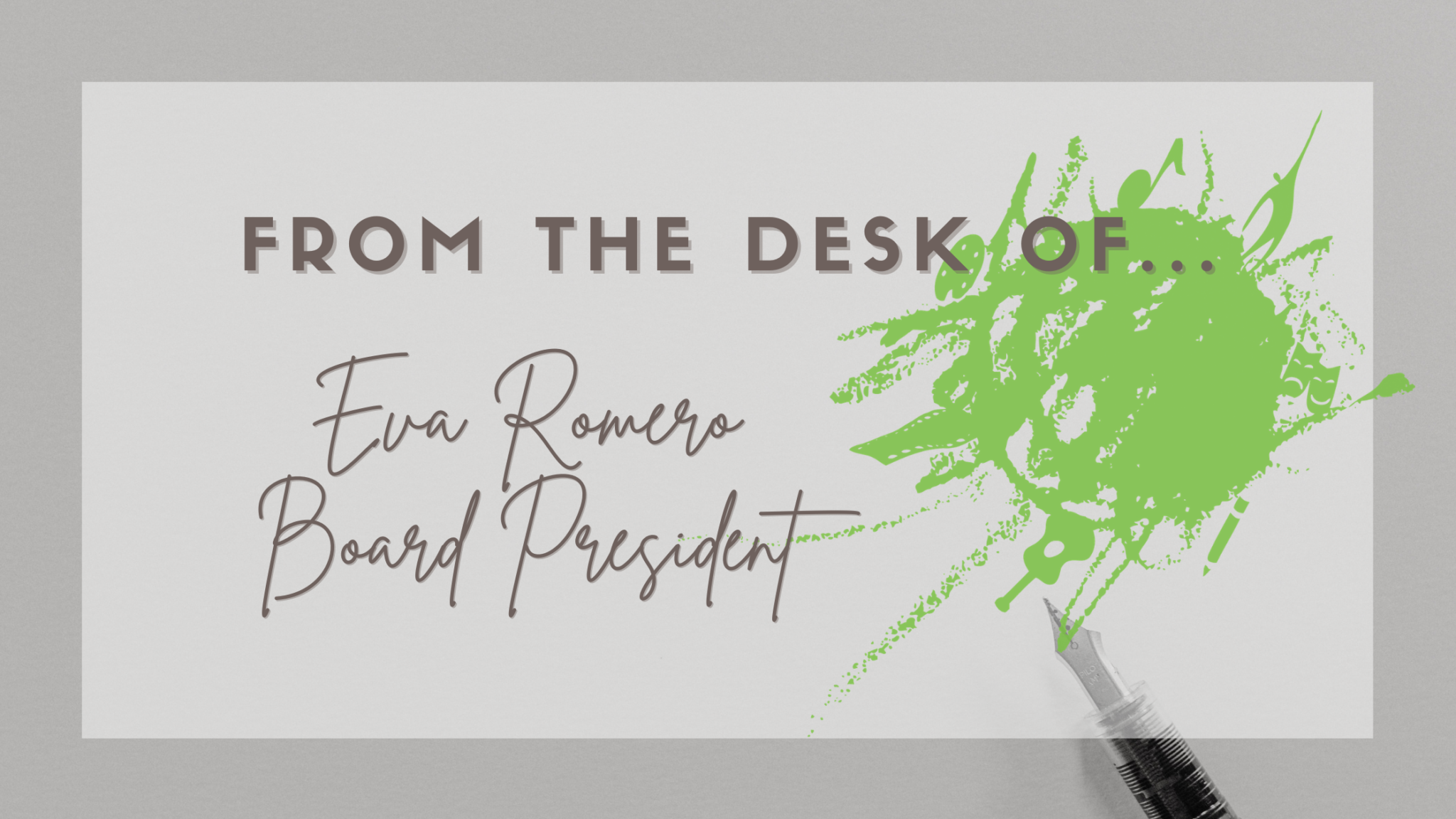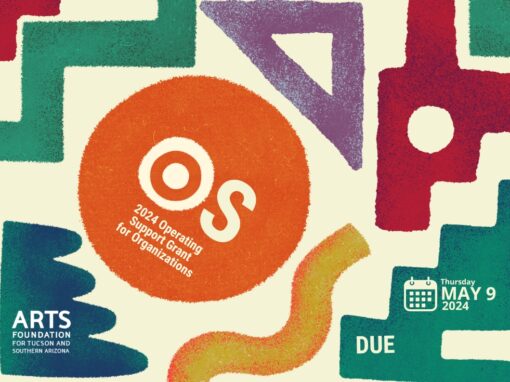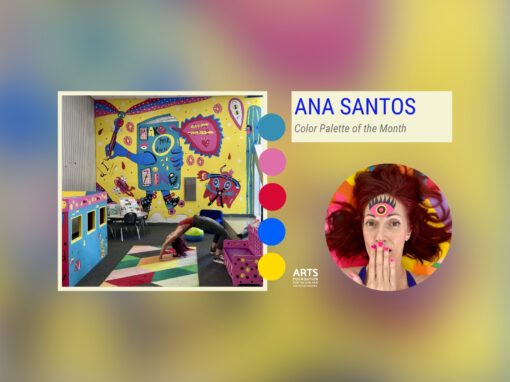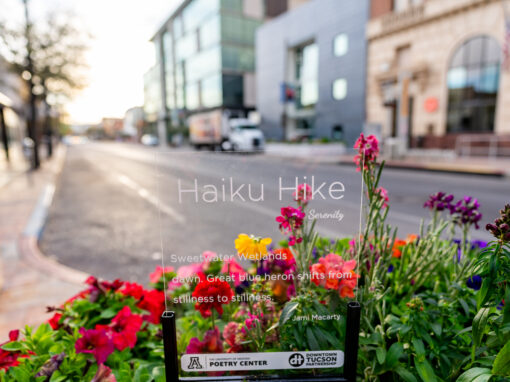From the desk of Eva Romero, Board President of AFTSA
I was already feeling a little overtaxed when I agreed to become board president, but nothing could have prepared me for what 2020 had in store. First our executive director left, and then a global pandemic hit–I admit, I was totally caught off guard. But the gifts of 2020 also turned out to be beyond our wildest dreams, and I believe 2020’s baptism by fire has changed us for the better and for good.
I should start by saying that we were primed. In the time Carol Varney served as executive director, she helped us gain a level of stability and growth that made it possible for us to finally turn our attention towards having a Diversity, Equity and Inclusion (DEI) retreat. In that retreat, facilitated by Jamie Utt-Schumacher, we did quite a bit. But in my opinion, the single most important exercise we did was take stock of our multiple identities and map them in relationship to power. We began the important work of examining our individual positionalities and our institutional positionality; what it means to be a grantmaking organization in the context of U.S. power dynamics.
Fast forward to when COVID-19 hit–again, we did not have an executive director in place, but we knew we had to immediately respond to the challenges brought about by closures and restrictions by launching the Pivot Grant round (with the support of our interim director, Robert Alpaugh).
In need of new leadership, we prioritized our equity goals–as visible in our advertisements for the position. We were wildly fortunate to be able to interview a number of stellar candidates–during the pandemic–and hire Adriana Gallego, with her experience in equity and advocacy at local and national levels. Shortly after Ms. Gallego came on board she coordinated the doubling of Pivot Grant award funds available, as made possible by our partners at the Community Foundation for Southern Arizona and secured a grant of $250,000 from the National Endowment for the Arts to expand service to Southern Arizona (one of only nine community arts agencies in the country to be awarded the maximum amount.)
The Governance Committee steered us in the direction of a new board composition matrix–that is, focusing on what we need our board members to do versus fixating on a typical list of skills, competencies or demographic checkboxes. We agreed we needed new board members to help us reach arts and culture communities that we want to serve better and engage more. Following our true north, we brought on Lucinda Hughes-Juan and Terrel Dew Johnson, focusing on their cultural work as members of the Tohono o’odham nation and, Yurika Isoe and Khailill Knight-Papaioannou, focusing on their work with emergent BIPOC artists. The Arts Foundation Board of Directors is now comprised of 17 intergenerational leaders from across Tucson, Sells and Ajo.
As the board worked on composition, Ms. Gallego worked on an equity framework for redistributing relief funds to artists and arts organizations. By the end of 2020 the Arts Foundation will have stewarded and committed a record $1,867,000 in COVID-19 financial assistance from multiple sources to support artists and arts organizations throughout Southern Arizona. These investments in our communities are made possible thanks to an incredible coalition, including the City of Tucson, Pima County, Arizona Commission on the Arts, National Endowment for the Arts, Community Foundation for Southern Arizona, Arizona Daily Star, and over 200 individual donors. This year we were able to re-grant to South Tucson and soon we will also be able to open a grant round to applicants outside of Pima County, expanding support to underserved rural areas. CARES relief has made it possible for us to regrant to 50% brand-new applicants and to expand our geographic reach like never before.
And while all this has been happening, the Arts Foundation also sponsored a new professional development series. “Creative Flowers Professional Sistah Circle for Pre-Career and Emerging Black Women Creatives” is a program that focuses specifically on growing, nurturing, and keeping Black women in leadership within the creative sector, including the non-profit arts and entertainment industry.
When the time came for the Fall Open Studios Tour, we could have simply cancelled, but instead, we rose to the occasion, transforming the event into a virtual interactive marketplace that pivots the offering in a way that still centers the economic opportunity at the core of this ambulatory marketplace where artists traditionally generate income for their micro businesses. Understanding that this is an income-generating opportunity for artists, the Arts Foundation migrated this marketplace to an online virtual offering that leverages our partnerships and access to resources to help ensure that artists are still able to make a living. You can browse the marketplace at ost.artsfoundtucson.org.
We also produced another year of Artistories, the podcast and minishow on KXCI, despite losing access to the KXCI studios. While it has been difficult to sustain, there was no way we could stop connecting you to the people creating the arts and culture experience in our region at a time of so much isolation and disconnect. Each episode explores our values as a community, and how they can inspire and guide us.
If all this was an equity sundae, the cherry on top was our Statement on Black Lives Matter and the accompanying Equity Resources list: English, Español. (A Statement on Black Lives Matter alone, does not a race equity sundae make.)
This is not all that we’ve done in 2020, but it is some of the work I can highlight as core to our mission of equitable economic growth and systemic change. It represents thousands of hours of work by staff, the board, committee members, volunteers, consultants, partners and donors. So many people joined forces to create more equitable redistribution of funds among the arts and culture producers who make our region what it is. We celebrate these achievements while recognizing that it’s still not enough; based on applicant information, $18,018,433 aggregate income loss was reported from 45 local organizations and $1,436,856 was reported lost from a sample of 126 artists. And this is only a snapshot of monetary losses. It does not begin to capture the grief and heartache that so many are living with. Our work is far from done. The good news is, you can make a difference, too!
I’d like to close this letter by honoring the life of Lucinda A. Hughes-Juan. She served our board very briefly before her passing, and we regret not having had more time with her, but her memory is a blessing. Her fierce dedication to the advancement of Native American economic and social development, women’s rights and Native youth empowerment inspires us all. We remain in solidarity with Lucinda’s generosity of spirit and will honor her legacy by creating a Pima County Youth Arts Scholarship fund in her name, specifically for Tohono O’odham youth seeking to continue their education through enrollment at Pima Community College or Tohono O’odham Community College. To change the lives of emerging indigenous artists, give now following the donation tab on our website or clicking here. Add a dedication to the memory of Lucinda A. Hughes-Juan so we can designate your generous gift correctly.
